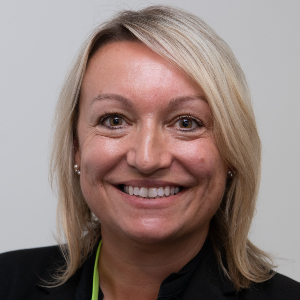Social work with children and families in Wigan is on the up.
Under a new leadership team, with political and corporate support, an additional £11m is being invested in practice over the next four years to ensure practitioners and managers have the workloads, equipment, training, and support they need to flourish in their careers and improve the lives of the town’s children and families.
Underpinning this is a culture of kindness, where creative practice is valued and visible senior managers positively encourage, and act upon, staff input.
Investing in social work
The council is recruiting an additional 40 children’s social care staff, over 30 of whom are social workers, with the rest being advanced practitioners and team managers.
Practice director Sandie Hayes, who joined the authority in January of this year, says the aim is to consistently achieve “smaller teams of social workers with manageable caseloads, so managers have less to oversee, and making sure our balance is right between ASYEs and experienced staff in our teams, so both groups have sufficient support around them”.

Colette Dutton, Wigan’s director of children’s services
The investment is also boosting resource in the placement commissioning service, to make it easier for social workers to find suitable placements for children in the council’s care and to achieve permanence for them, says Colette Dutton, director of children’s services since July 2020.
“One of the key bits of feedback from social workers is how important it is to have a whole council approach to doing a good job; support from colleagues in commissioning, fostering, residential, education and finance, and building our teams around that approach so our social workers don’t feel they are working alone. We have also focused on making sure staff have the tools they need to do a brilliant job. It’s about having the right IT, the right support from managers and the right training and development opportunities. Yes, we want to attract more excellent social workers but we also put as much focus on retaining those excellent staff members we have already in Team Wigan.”
The right tools have been critical for practising through the pandemic.
Principal social worker Rebecca Sutton says: “Staff wanted more up-to date-tech to be able to engage with children and families and that was escalated; it resulted in staff getting the type of phones that they needed, enabling them to video call children and families and work in more creative ways.”
‘We’re all on the same side’
As Colette and Rebecca make clear, social workers at Wigan have ample opportunity to shape the practice environment in which they work.
Child protection conference chair Paul, who, like Rebecca, joined Wigan in 2019, says: “One of the qualities I look for as a practitioner is having the confidence to approach management with issues. I have worked in other authorities where people have not felt confident to do that. In Wigan I’ve done that, and colleagues have done that and we’ve had a response.”
Advanced practitioner Jo, who rejoined Wigan last year after a decade at a neighbouring authority, agrees: “Managers are very approachable and friendly. You don’t feel it’s ‘them and us’. They genuinely do want to help you find a solution for yourself and the people you are working with. There’s a real sense that we’re all on the same side. You don’t always get that.”
Social worker Jac, who has recently taken the next steps in her career moving from the locality service to the children in care service, says: “It does feel there is that visibility and those at the very top, Sandie and Colette, will get involved with things that are going on for individual families and workers if they need to.”
She adds of Rebecca: “The support and role of the PSW is really important and valuable for Wigan. I never feel I can’t contact her and I can’t share whatever it is that may be troubling me, or if I have an idea about something, I can share that with her. She’s a really good advocate for the workforce.”
Regular input
Practitioners’ ability to shape their environment is enabled through a number of forums. Rebecca holds a social work forum every six weeks, where practitioners feed back on how they are feeling and about what they would like to see change, which she then feeds into Sandie and Colette.
A practitioner, along with Rebecca, attends and gives the social work view at the authority’s children’s services improvement board, Colette hosts a monthly leadership breakfast for all managers and there is also a fortnightly forum for advanced practitioners.
In the context of the pandemic, Sandie says she and Colette have recognised how creative they have had to be both starting their roles in a ‘virtual’ capacity.
“We have really focused on the ‘how’ we deliver our services and our underpinning Wigan Behaviours of accountability, positivity, courage and kindness. Trying to formulate relationships on Teams has been challenging at times; we can’t just turn up to the office and chat to people. We have had to let people get to know us in different ways and then they have formed an allegiance with us; all sharing the one vision for children and young people in Wigan.”
Senior management support is stronger in Wigan than the national average, according to the social work health check, the Local Government Association’s annual survey of social workers’ satisfaction with their employers and working lives.
While nationally, 82% of social workers said they had access to advice and support from senior social work leaders, this rose to 87% among Wigan’s children’s social workers.
‘You are allowed to be creative’
Alongside the accessibility of senior management, Wigan’s culture promotes creativity in practice, says Rebecca.
“You are allowed to be creative. No idea is a bad idea. You have permission to think and do differently.”
Again, this is borne out by the health check, which found that 84% of social workers nationally, but 88% of children’s social workers in Wigan, felt able to use their professional judgment, creativity, and autonomous decision-making where appropriate.
Says Colette: “Both myself and Sandie have worked in different places and cultures and this feels different. It’s a place where people can do really good social work because of what’s surrounding you.”
This includes a strong career development focus, in which managers support staff to identify and pursue their goals.
Jac joined Wigan on the Frontline scheme in 2018 and then worked in a locality team for 18 months before recently moving into her current role in children in care. The move was strongly influenced by her long-term ambition to work in adoption.
“I ultimately want to work in an adoption team but am a bit too early in my career to do that. I was able to speak to senior managers about the move and get that process going as smoothly as possible. My service lead was supportive.”
‘Progression is natural, not rushed’
Paul has moved from social worker to advanced practitioner and now to child protection conference chair in the two years he has been at Wigan.
Both have felt very supported in making these moves and integrating into their new teams.
“I feel very well supported by the team manager that I’ve moved to and the ethos of the team has been positive,” says Jac. “Every Monday she sends out an overview of what has happened the previous week, the achievements of the team are quite celebrated. I was invited to team meetings and sent information beforehand so I got to meet the team virtually and get to know them a little bit.”
Paul adds: “The management has been phenomenal – if I pick up my phone to speak to my manager, I get a call back. I’m not kept waiting. There’s always appreciation for your views in this role. I feel blessed with the opportunity to contribute to a social worker’s practice. Since coming to Wigan, progression has felt natural – it’s not felt rushed. While it’s guided by myself, it’s encouraged by those around me.”
And this is what practitioners across Wigan feel. The health check found that 86% of the council’s children’s social workers felt their manager encouraged them in their career development, compared with 80% nationally.
Investment in training
Supporting career development is significant investment in training, across a range of subject areas and in Signs of Safety, the practice model that Wigan uses. More recently it has carried out training in the essentials of social work to help ensure a consistent level of practice across the authority – an initiative that was welcomed by staff.
Jac says she really valued being given the time away from practice to do this training: “One of the things for me that I noticed about it, was that it was equally relevant to a student as to someone who had been doing the job for 20 years because it covered all basics.”
“It was about being brilliant at the basics,” says Rebecca. “There were sessions for social workers on essential practice stuff, sessions for APs and sessions for team managers. It’s gone down really well.”
A culture of kindness
What all agree is that a critical part of Wigan’s culture is the kindness between staff, which has been critical during the pandemic, particularly for staff like Joanne who joined as Covid was taking hold.
“The thing that stands out about Wigan is that it’s a really friendly authority and place to work,” she says. “Yes, it’s been hard as we’ve not been in the office. But that hasn’t stopped people trying to make friends, check in, meet up regularly online. It’s been really supportive.”
Paul says: “One of the things that is a high positive for me is that peer support is second to none. Everyone looks out for each other. I’ve been in a team which always has your back, whether it’s to discuss challenges in cases or have a chinwag. That’s been a real positive and, as we’ve had to endure the pandemic, I can pick up the phone, have a Teams meeting, still offload and that’s been consistent.”
Rebecca adds: “It’s very friendly. People are kind. It’s one of the behaviours we ask staff to model. As a new starter it was really quite impressive. People respect each other. They have that shared goal. Colette and Sandie have been instrumental in driving our vision.”
This is enhanced organisationally by a package of wellbeing support that practitioners have access to, including 24-7 access to the employee assistance service, bespoke counselling support and a fast-track physio service.
“Wigan was already seen as a very flexible place to work before the pandemic and that combination of home working, utilising partnership spaces and our state-of-the-art council offices will continue with a culture of trust and accountability, allowing staff to determine what’s best for them and their home life balance” Sandie said.
A warm welcome
So, what can you expect if you join Wigan?
“Once we recruit you, we do it really quickly,” says Colette. “We provide lots of opportunities to help you feel part of your team before day one, by sending you a welcome pack, a lanyard, a top trump style card deck with info about our senior team, some mints (made in Wigan!) and other bits and pieces. It’s a bit cheesy – but feedback is really good; our new staff have appreciated feeling the excitement of being part of Team Wigan before they even start.”
Interested in working at Wigan? Find out more by checking out the latest vacancies here.




 Facebook
Facebook X
X LinkedIn
LinkedIn Instagram
Instagram